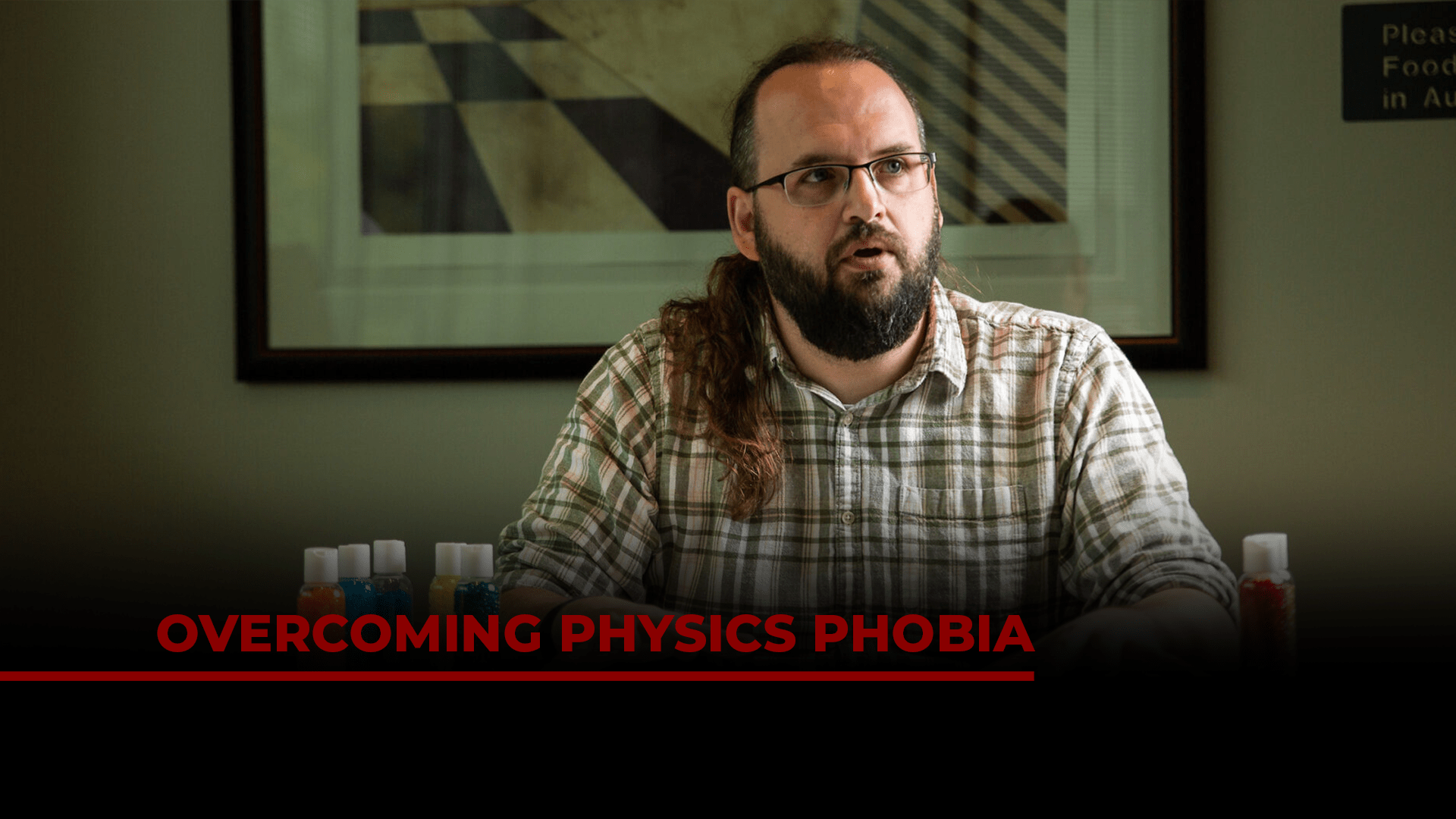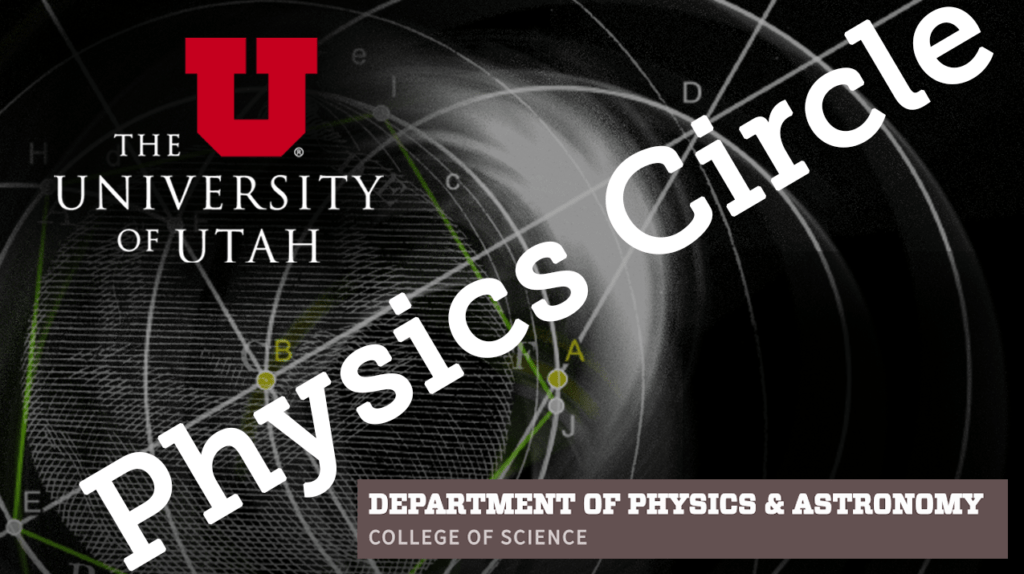
This page originally appeared on CoS
By CJ Siebeneck
“The core concept of physics is a physical intuition about the world,” Kevin Davenport says. “Human beings love to think about puzzles and problem solving.”
Davenport, who earned his PhD at the U in 2019 is now an assistant lecture professor in the department of physics and astronomy and recipient of the College of Science’s 2023 Distinguished Educator Award.
Inspired by the U’s “Math Circle,” one of the most well-established in the nation, Davenport has been instrumental in creating Utah Physics Circle, a program designed to help high schoolers get involved in physics by fostering the specific type of thinking that physics requires. Meeting monthly, the Circle is built to facilitate the specific problem-solving mindset that will help students succeed in physics classes. “The point of the Physics Circle is to try to develop a group where we can invite people to come in and enjoy problem solving,” Davenport states who works closely with colleagues professors Oleg Starykh and Tugdual LeBohec.
Discipline-specific lenses
Davenport teaches a series of labs for non-majors that have a focus in life sciences. He creates his class with a lens towards students who are new to physics and haven’t mastered the intuitive way of thinking specific to physics. “When I design my classes this way, it’s really important to not lose sight of what it feels like to not know how to do this,” he says. “We don’t want them to have an experience where we put up this edifice of really complicated terminology and mathematics that seems impenetrable.”
Teaching a class as difficult as physics requires adapting to students and having many ways of teaching the same concepts. “I constantly rebuild my class,” Davenport says. “I’ll try to tailor the examples and things we talk about to my students. If there’s a lot of biology students, for instance, I’ll pick problems that are probably of more interest to them.”
Davenport enjoys teaching students an introduction into physics. Most have very little understanding of physics when they come into a college physics class. They’re affected by what Davenport calls “physics phobia” because of how intimidating and new it is. But Davenport, who has a broad academic and work background in everything from information technology to design is uniquely poised to help students understand physics.
“What’s interesting to me is explaining concepts to a large group of people where this is not the thing they’ve chosen to do with their life,” Davenport says. “I’m deeply interested in communicating complex ideas to people who don’t understand the complex ideas initially.”

